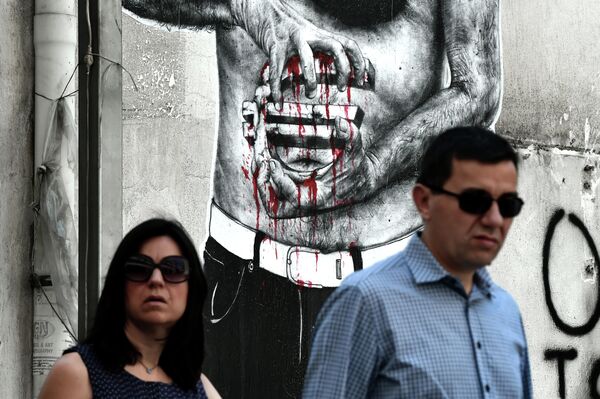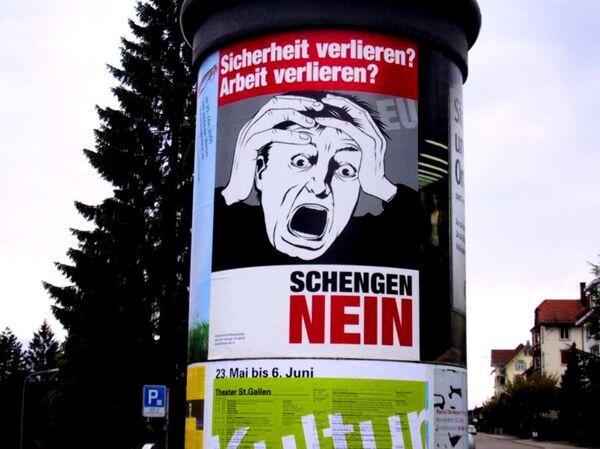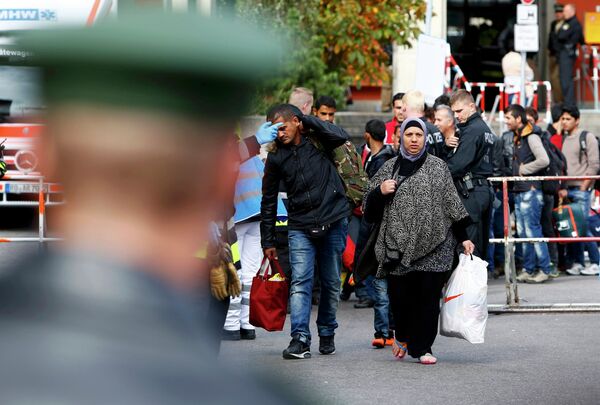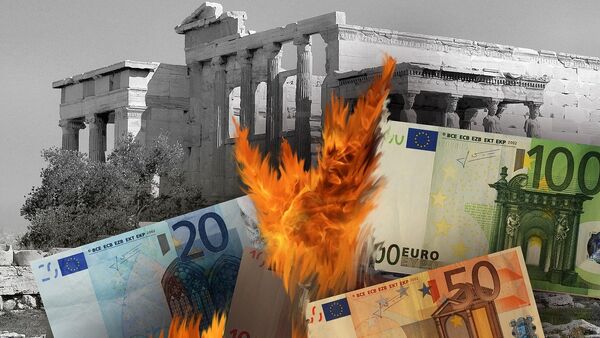Fundamental flaws in the EU project are being exposed daily in the current migrant and refugee crisis, which has pitted nation against nation over how to deal with the situation. It mirrors the equally dysfunctional way in which the EU dealt with the fallout from the global credit crash which led to Greece, Portugal, Ireland, Spain and Cyprus all having to be bailed out.
Probably should add, 'and continues to do so' #EUisNotWorking https://t.co/TejTjVfg8g
— Lance de Boyle (@stu_LD) June 10, 2015
In the aftermath of the First World War, the League of Nations was created with the express intent to "achieve international peace and security by the acceptance of obligations not to resort to war, by the prescription of open, just and honorable relations between nations, by the firm establishment of the understandings of international law as the actual rule of conduct among Governments, and by the maintenance of justice and a scrupulous respect for all treaty obligations in the dealings of organized peoples with one another."
That project ended in disaster with the league being unable to prevent conflicts between many of its own members, including the Greek invasion of Bulgaria in 1925, the Italian invasion of Abyssinia in 1935, the Spanish Civil war and the rise of Nazi Germany, which precipitated the Second World War.
After the Second World War, in Europe, there were moves to bring peace to all nations through a common trading agreement that started with the European Coal and Steel Community, which then led to a broader European Economic Community and finally, to the European Union.
Financially Fallacious
The first systemic flaw was the creation of a single European currency — which not all members of the EU are part of — this creating a two-tier Europe, comprising those within the Eurozone and those outside it.
The inherent failure of the Eurozone is that in order to have a common currency, there needs to be a common fiscal framework and a common political consensus on the single currency framework — coincidental policies on taxation, pensions, welfare and all other economic levers and pulleys. That is patently not the case, with each member state keen to maintain control over its own fiscal policies.

The creation of the euro was preceded by the European Monetary Union, aimed at establishing convergence criteria under which each country could jump on the euro merry-go-round and seamlessly ditch its previous currency without falling off.
That had to presume each country having similar economic cycles, similar debt-to-GDP ratio and many more economic indicator similarities. That was patently not the case when Greece joined the euro.
Take any economic indicator map of #EuropeanUnion & not a single common theme. #Eurozone is a failure. #Eurogroup pic.twitter.com/vgqi4dUyWH
— Nikhil Sapre (@Nikhil_s147) August 5, 2015
Since countries within the Eurozone were no longer offered the option of printing their own money (in their own currency) or devaluing, poor fiscal management led to a sovereign debt crisis, requiring bailouts — such as with Ireland, Portugal, Cyprus, Spain and — finally for the third time — Greece.
Migration Matters
And so, to the migration and refugee crisis hitting Europe today. The Schengen Agreement — to which the UK and Ireland are not signed up — was an open borders agreement that allowed for the inner borders of member states to be open, unchecked and unguarded. It allowed for the fundamental principle of the EU to be exercized — the freedom of movement of people, services and goods.

The principle was conceived before the rise of Al-Qaeda, the Taliban, Boko Haram and other terrorists groups. It was drawn up ahead of 9/11 and the War on Terror, the invasion of Afghanistan and Iraq and way in advance of the crises in Syria and the Arab Spring.
Countries in Europe are now deeply divided over how to deal with the diaspora from the Middle East, Africa and the Balkans. Germany is calling for each country to be ordered to take on a fixed quota of migrants and refugees. Hungary has erected a razor-wire fence, Austria has instigated border controls, France and the UK are at loggerheads in Calais, and the whole borderless agreement under Schengen has been thrown into chaos.
Just as the League of Nations was unable to live up to its principles in a changing world and eventually collapsed, the European Union is facing its toughest test. Its economic union has been exposed as being deeply flawed, and now the fundamental principle of the freedom of movement is facing its greatest challenge.

How it deals with the tide of migrants and refugees over the coming months will be a defining test of its ability to deliver what it was intended to when conceived following the Second World War. In the words of British Prime Minister Neville Chamberlain in 1939, will there ever be "peace in our time"?



